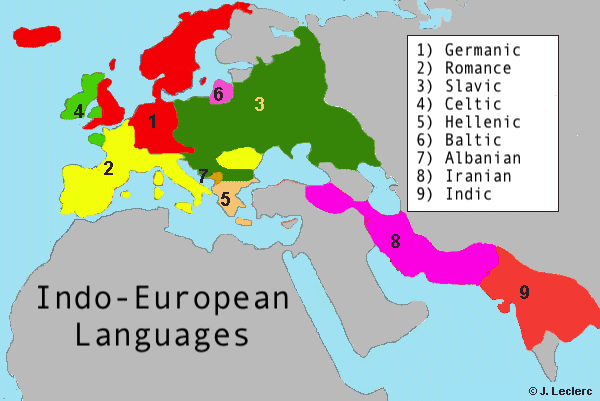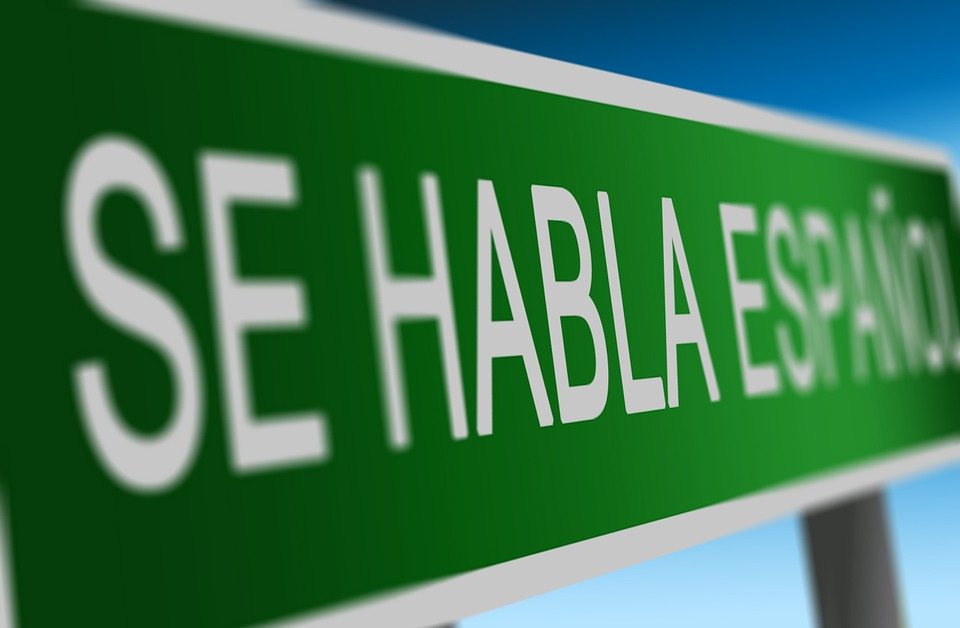Spanish is Not an Easy Language to Learn
A 2013 study by the Modern Language Association of America found that more American students in higher education study Spanish than all other languages combined. In the UK, Spanish is also the most-studied language, according to a 2013 British Council report. So that must mean that Spanish is easy to learn, right? That's often what we hear. But why? Do English speakers really have an easier time learning Spanish than any other language? That's the million-dollar question.
Is Spanish Easy to Learn? Yes! For English Speakers…
We often hear that Spanish is the easiest language for English speakers. While it's hard to say for sure that one language is easier to learn than another, English speakers do tend to pick up Spanish vocabulary and grammar fairly quickly. In today's article, we'll talk about some of the reasons why this might be the case.
Even though Spanish might seem "easy," that's no reason to get complacent! While it might not take long to achieve a basic level of Spanish, you still need to put in some hard work to become proficient! The second part of the article is dedicated to what makes Spanish… not so easy. For now, let's find out what makes learning Spanish easy.
-
Similar roots
Let's start with a quick history lesson. As you begin learning Spanish, you will notice thatmany words are similar to their English translation. There are some false friends (words that have lexical similarities but different meanings) but many terms are indeed "true" friends, or cognates. Some examples? Familia and family, région and region, abandonar and abandon. And the list goes on… There are somewhere between 10,000 and 15,000 Spanish-English cognates.
While English is a Germanic language, it was also heavily influenced by French, another Romance language. That has resulted in many vocabulary words with Latin roots, just like Spanish.

Even when the words aren't spelled or pronounced in exactly the same way,you can often use simple reasoning to understand the English translation of a Spanish word.
Some examples might help make that more clear:
- adorare in Latin,adorar in Spanish, adore in English
- accident in Latin,accidente in Spanish,accident in English
- abusives in Latin,abusivo in Spanish,abusive in English
Start improving your Spanish today
 Want to learn Spanish or improve your skills?
Want to learn Spanish or improve your skills?
Good news: we can help!
More good news: you can get started for free! With your free trial, you can test drive the most effective method for learning Spanish for the next 15 days!
Vocabulary flashcards, videos with subtitles, audiobooks, articles adapted to your level – with MosaLingua Premium (Web & Mobile), you'll have access to all this and more. Get started right now. It's free—and risk-free—to try!
Try MosaLingua Premium today
-
Spanish gender and number agreement are super easy
One of the first things you will learn about the Spanish language is that nouns, adjectives, and verbs have to agree in gender and number – another particularity of Romance languages.
For those of you who studied Latin, think back to declensions… They weren't very fun to study back then, but today they're super helpful for learning other Latin-based languages!
This is where knowing another Romance language will come in handy, since English doesn't have noun genders. Most words keep the same gender, whether in Spanish, French, Italian, Portuguese, etc., since they come from the same Latin roots. A chair, ungendered in English, is feminine in every Romance language: una silla in Spanish, une chaise in French, una sedia in Italian, uma cadeira in Portuguese… you get the idea.

💡 MosaTip: If you don't know any other Romance languages, there are some tricks to help you remember which words take which gender in Spanish. For example, words ending in "o" are generally masculine, whereas words ending in "a" are usually feminine.
-
It's easy to get exposure to Spanish
Another reason that Spanish might be easy for English speakers, especially Americans, is due to its prevalence in our everyday lives. As opposed to other languages, say Bulgarian or Hebrew, students of Spanish can find study resources without looking very hard.
You probably get at least one Spanish TV channel or radio station. Many of the signs, menus, and manuals you come across are written in both English and Spanish. If you've ever been to an airport, you probably already know the Spanish word for "exit" (salida).
In addition to these free reading exercises, you might have a neighbor or coworker whose first language is Spanish (there are over 450 million native speakers in the world!) and with whom you can practice your conversation skills.
-
Spanish is a phonetic language
The last thing that makes Spanish easy to learn is the fact that,Spanish is a "no surprises" language, phonetically. All consonants and vowels are pronounced just as you think they would be. There are no silent letters (except the letter "h"… which is hardly ever pronounced!), no changes in pronunciation, no surprises. Spanish sounds just like it is written, and vice versa.
Mi ventana está cerrada. My window is closed. Once you know how to pronounce all of the letters in this sentence in Spanish, you will know how to read and pronounce it. If you are learning English and you know the word "cow" or "now," you might be tempted to pronounce "window" incorrectly. English, not so easy. Spanish, easy!
Spanish Is Easy to Learn, But Easy to Forget!
So, now that you know that Spanish is easy to learn… you're probably jumping with joy at the thought of picking up Spanish quickly. And it's true, with some specialized methods, you can learn Spanish in no time.
But without at least some effort, at least some studying, and without using it regularly, you will lose it just as quickly as you picked it up. Many of my friends who studied Spanish in middle or high school have forgotten practically all of it. Even the words they once considered "friends"? Gone!
And this is the trap.
Since Spanish isn't so far off from English, we often feel like we don't have much to learn – which is true. We put in a lot less effort than we would when learning "harder" languages. But if we don't take our time when learning it, we don't memorize anything in the long term. Result: we forget it easily.
Our advice is to spend as much time learning Spanish as you would on any other language. Keep reviewing your vocabulary words, and keep practicing… or you risk forgetting everything in the blink of an eye. With MosaLingua Spanish, all it takes is a few minutes of practice each day and you'll be on your way to Spanish fluency.

No Slacking Off! Here's What Makes Spanish Hard
Is Spanish hard to learn? No. It's objectively easier for English speakers to learn than, say, Chinese. But if Spanish language learning seems easy in theory, in practice it isn't quite so simple. Why? Here are a few challenges Spanish learners face:
- If you've ever listened to Spanish radio or watched a Spanish-language movie on Netflix, you already know one major challenge. Spanish speakers talk very fast. You can be very familiar with Spanish vocabulary, but if your ear isn't well trained you will have trouble understanding native speakers. Train your ear with a few simple and fun exercises. Watch Spanish movies (with Spanish subtitles!) or listen topodcasts to get used to hearing the language spoken naturally (a.k.a. quickly).
- While the English language probably has more words, it is still important to understand the nuances of Spanish vocabulary, as well as the genders of nouns. Therefore, while it might be easy to reach a basic level of Spanish, acquiring a rich vocabulary and being able to use it appropriately is a much more intense and lengthy process.
- Just rolling your "R"s and sticking an "ay" sound on the end of English words doesn't work every time… Actually, it hardly ever works. There are certainly some English-Spanish cognates, but be wary of false friends. Like "embarazada," which doesn't mean "embarrassed," as you might think. (It actually means "pregnant"!)
- Speaking of rolling your "R"s—there are a few tricky sounds you'll need to work to master. Our Spanish pronunciation guide can help.
- Finally, there are tips, but there's no real secret to learning vocabulary. Y ou need to practice a little bit every day.
Final Verdict: Is Spanish Hard?
We can safely say that several factors make learning Spanish relatively easy. But this doesn't mean that you don't have to put in any effort! With the right approach and techniques, you'll be speaking Spanish in no time at all. But only with practice and study will you be able to retain your Spanish skills in the long term.
Don't forget: just because Spanish is "easy" doesn't mean you shouldn't learn it!
*Enrollments in Languages Other than English in United States Institutions of Higher Education, Fall 2013.
**Languages for the Future, 2013.
donaldsonpribue1956.blogspot.com
Source: https://www.mosalingua.com/en/spanish-easy-to-learn/
0 Response to "Spanish is Not an Easy Language to Learn"
Post a Comment